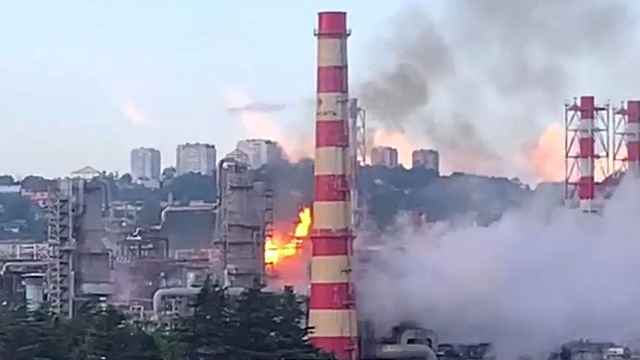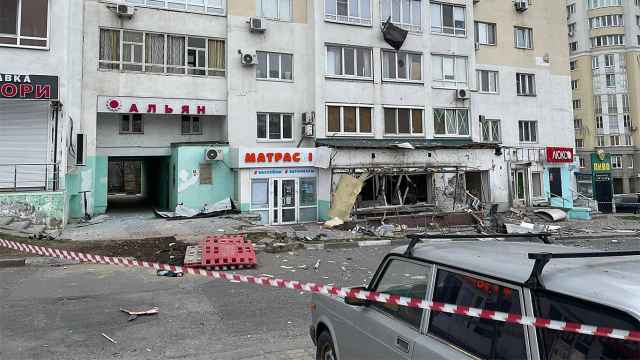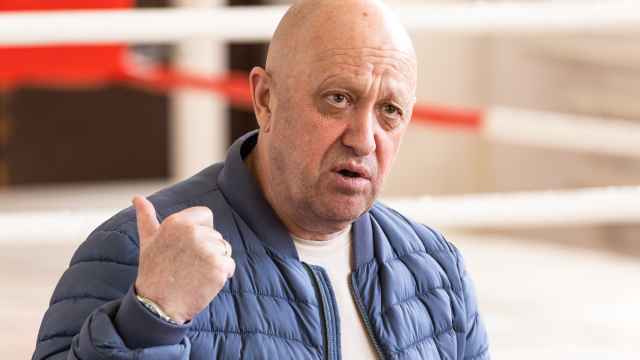The recent arrests of two Russian volunteers helping Ukrainian refugees fleeing the war and living under occupation have thrown the future of this aid into uncertainty, activists and observers told The Moscow Times.
Nadezhda Rossinskaya, also known as Nadin Geisler, was arrested on Feb. 1 upon returning to the Belgorod region and charged with “publicly calling for activity against the Russian state’s security.” Authorities accuse her of calling on her followers to donate to Ukraine’s Azov Regiment in August 2023.
If convicted, the 28-year-old — who denies the charges — could face a fine or between three and six years in prison.
Her case has put a spotlight on the work of the dozens of Russian volunteer groups that have helped Ukrainian civilians to find housing, shelter and benefits in Russia or leave for a third country since Moscow’s full-scale invasion of Ukraine.
According to the UN, 1.2 million Ukrainians have entered Russia since February 2022.
Rossinskaya’s volunteer initiative, Armiya Krasotok ("Army of Beauties"), claims to have helped 25,000 people in occupied Ukraine in 2022-2023 — reaching places under occupation that many other volunteers have found difficult to access.
In an authoritarian state at war that has been cut off from international humanitarian agencies, this volunteer work has been considered vital to helping Ukrainians survive Russian occupation over the past two years.
The investigation into Rossinskaya is not the first case of its kind in Belgorod, which has become a frontline region in Moscow’s war against Kyiv — and the site of the only remaining land crossing between the two countries.
Another Belgorod activist and volunteer, Alexander Demidenko, was reportedly abducted and tortured in November 2023.
Demidenko’s home had become a stopping point for hundreds of Ukrainians crossing back into Kyiv-controlled territory nearly every day from Russia, where they were either forcibly deported or evacuated from what is now occupied territory.
They do so via the Kolotilovka border checkpoint, where they make the final two-kilometer journey to Ukrainian-controlled territory on foot — which is often incredibly difficult for elderly or disabled people. Around 100 people are believed to cross every day.
Demidenko had helped Ukrainians reach the checkpoint. According to his son, Demidenko was abducted at Kolotilovka after reporting an alleged scheme to solicit bribes from Ukrainians to a local media outlet, Pepel.
Demidenko now faces charges of illegal weapons possession.
Journalist Nikita Parmenov, who runs Pepel, said the arrest of these two prominent volunteers means that the tens of thousands of Ukrainian refugees seeking assistance in Belgorod or help to leave the country could be left “one-on-one with Russia.”
“Nadin and her volunteers effectively took the burden of helping [Ukrainian] refugees off the shoulders of the state,” Parmenov told The Moscow Times of Rossinskaya.
“But after Nadin’s arrest, the [volunteer] aid will probably come to a complete stop,” he continued. “People understand that law enforcement is putting pressure on them and that their volunteer work doesn’t suit the authorities.”
The Rossinskaya case has also spotlighted the complexities and challenges facing Russian volunteer groups, a veteran Russian activist told The Moscow Times on condition of anonymity.
“[Volunteers helping Ukrainians] are not an organized movement or organization,” they said.
“There are dozens of groups across the country. Some of them are bigger, some — smaller,” they continued. “And aside from the independent volunteers [who are independent of the Russian state], there are also pro-state and ‘trusted’ groups, who work together with Russian state organizations.”
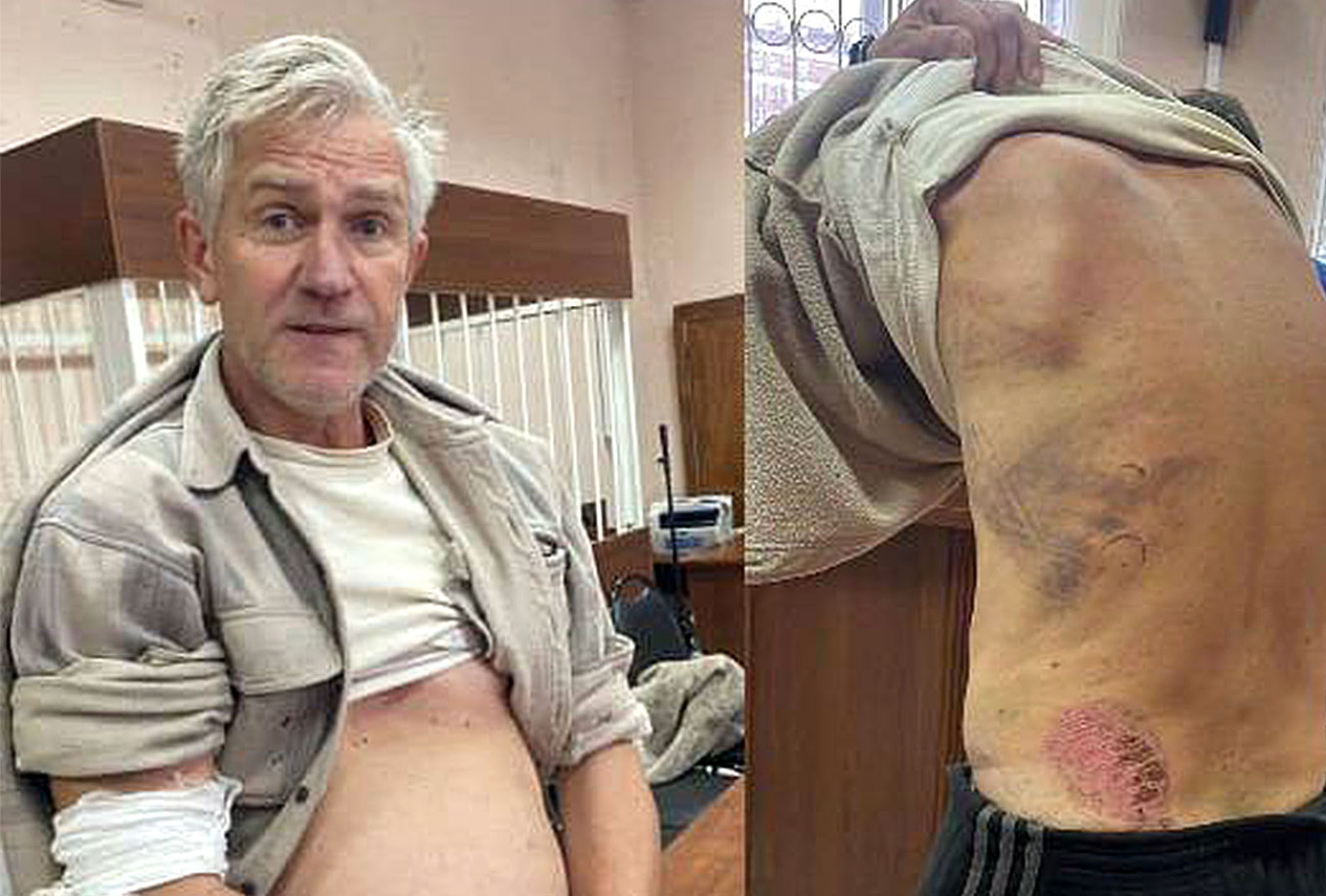
Alexey Pryanishnikov, the legal coordinator of Rossinskaya's defense and a lawyer for a human rights project run by Mikhail Khodorkovsky, told The Moscow Times that volunteer assistance to Ukrainians was “associated with serious risks of persecution by the [Russian] authorities.”
“In the Belgorod region, the FSB has increased attention to all activists, to all people who help Ukrainians. And naturally, she did not go unnoticed,” he said.
The FSB “see every civilian in Ukraine — in particular those whom Nadezhda helped — as a threat,” he said.
Rossinskaya had spoken out against the war and taken part in anti-war activities — including handing out flowers in central Belgorod while wearing blue-and-yellow clothes in May 2022. She fled the country for Georgia in May 2023, citing unspecified threats.
Her work in occupied Ukraine nonetheless drew suspicion from Ukrainian and Russian civil society groups, as Rossinskaya maintained contact with Russian military personnel to gain access to occupied and frontline areas.
She was added to Ukraine’s Myrotvorets database, a civic initiative that collects information on individuals whom its founders believe are threats to Ukrainian statehood.
In autumn last year, a local Ukrainian civil society group accused her of ties to the Russian security services over her activism in Moscow-occupied Ukraine — a claim that her Army of Beauties initiative strongly denied.
“Since April [2022] thousands of people have received help [from us], and continue to do so,” Rossinskaya said at the time.
But in court on Feb. 2, Rossinskaya said she supported President Vladimir Putin and Russia’s “special military operation” against Ukraine. She also claimed to have helped Russian military personnel, calling on a United Russia MP to confirm her story.
She denied that she controlled or owned the Instagram account which investigators claim called for donations to Azov in her name.
According to Pryanishnikov, Rossinskaya said that she provided help to the Russian military “in order to protect herself and, if possible, avoid imprisonment.”
“You cannot treat the words of a person who is essentially a hostage uncritically,” he continued, emphasizing that she had “gone through interrogations by the FSB for 24 hours without a lawyer they could trust, through search and imprisonment in a detention center.”
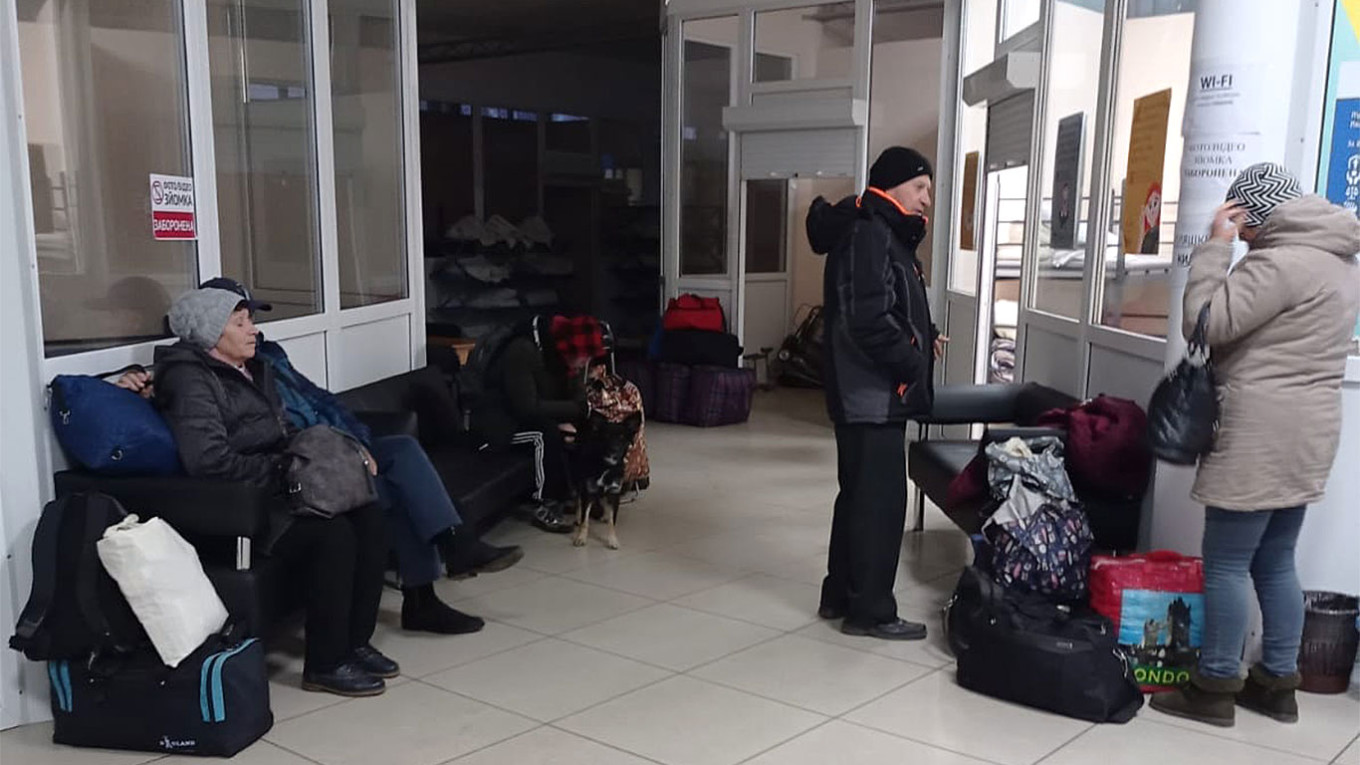
“Nadezhda does not admit her guilt and will actively defend herself,” he said.
Rossinskaya’s case has provoked a strong response from Russian civil society.
Thousands of people donated to a crowdfunding campaign that journalist Parmenov launched last Friday to assist with Rossinskaya’s legal bills. They contributed some 700,000 rubles ($7,600) overnight.
“It’s a surprising story. ... I didn’t believe we’d even get 500,000 [$5,400],” Parmenov said.
“People gave money from across the country. Not only Belgorod, but St. Petersburg, Moscow, Yekaterinburg and a bunch of others. One person gave us their last 200 rubles in their account. Some gave us 20,000. And others — 10 rubles.”
Before leaving Russia, Rossinskaya said she had noticed that she and her volunteer hub in Belgorod had come under surveillance and that she could regularly hear gunshots outside the building — incidents that local police refused to investigate, she claimed.
This point was confirmed by Rossinskaya’s lawyer, Pryanishnikov, who said the case files of the investigation “contain documents that indicate that over the past year, she was, so to speak, in the field of view of the FSB.”
Independent media also reported that the Russian security services had interrogated people who gave donations for Ukrainian refugees before she left the country — on the basis that she had been “sponsoring the Ukrainian army.”
Speaking to the independent 7x7 news website in 2023, she claimed “there were no grounds to imprison her.”
“Prove that I am sponsoring the Ukrainian army. Prove that when I evacuated someone, I knew that their relatives were at the front,” she said. “I’m just a volunteer. I just help anyone without knowing who they are. I always said that we ‘are helping a brother nation,’ we didn’t cross any lines.”
A Message from The Moscow Times:
Dear readers,
We are facing unprecedented challenges. Russia's Prosecutor General's Office has designated The Moscow Times as an "undesirable" organization, criminalizing our work and putting our staff at risk of prosecution. This follows our earlier unjust labeling as a "foreign agent."
These actions are direct attempts to silence independent journalism in Russia. The authorities claim our work "discredits the decisions of the Russian leadership." We see things differently: we strive to provide accurate, unbiased reporting on Russia.
We, the journalists of The Moscow Times, refuse to be silenced. But to continue our work, we need your help.
Your support, no matter how small, makes a world of difference. If you can, please support us monthly starting from just $2. It's quick to set up, and every contribution makes a significant impact.
By supporting The Moscow Times, you're defending open, independent journalism in the face of repression. Thank you for standing with us.
Remind me later.




